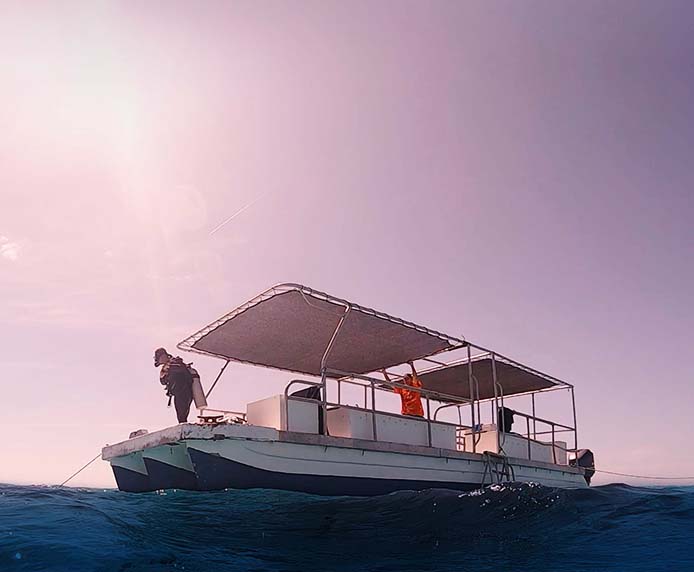
Permanent Moorings
Corals are slow-growing organisms, with most species growing only one inch or less per year. Breakage of a single coral can therefore cause damage that can take years or even decades to repair. As a result, twenty-five coral species are considered threatened or endangered, including at least four species of coral (elkhorn coral, staghorn coral, pillar coral, and rough cactus coral) that are indigenous to Andros.
In addition to being endangered organisms, corals are also among the most important organisms to marine ecosystems. Coral provides a critical habitat for a wide range of marine organisms, many of which are also endangered or threatened. They also provide food for marine organisms and serve as an important source of nitrogen and essential nutrients in the marine food chain. Corals have broader benefits to ecosystems as well; they assist in carbon and nitrogen fixation, nutrient cycling, and protect coastlines from damage caused by waves and tropical storms. The destruction of coral reefs through aimless anchoring has a significant impact on the health of the marine ecosystem.
Creating permanent moorings are expensive as parts and equipment must be shipped into Andros. The moorings are installed by trained personnel using a high-pressure pneumatic hydraulic drill, which cements the pin in place. Trained scuba divers install the proper fastener, rope, and flotation device. The moorings also require occasional maintenance to repair broken ropes or other damage, which can result in additional expense as well.